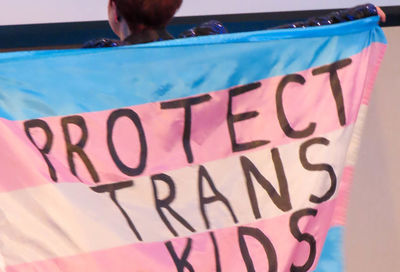Because I’ve been doing this long enough, I tend to approach annual political events like the State of the Union speech as a bit of a chore — something I have to watch rather than something I want to watch. It’s a scene-setter that plays as political theater, even more so this year as Congress staged a display of newfound comity by sitting red-blue-red-blue rather than in the usual two cliques.
It was a rather high school solution to a grown-up problem, but it worked out surprisingly well if you just look at the greatly reduced number of standing ovations. I can’t imagine how long the speech would have gone on had they engaged in the usual congressional habit of standing up for every other sentence the president utters and applauding as if it were a showstopping Broadway number.
All of us in D.C. have a tendency to treat the State of the Union as a political Super Bowl when, in reality, it’s more of a first-round playoff. Tactics and strategies are discussed and floated, pundits write ”suggested” speeches that they believe the president should give, everyone provides a list of issues they want to hear addressed by the man standing at the center of the stage.
In the days leading up to the speech, some in the LGBT community were pushing the idea that President Obama should use the State of the Union to talk about marriage equality. This, of course, was not going to happen. Our political reality of the moment is that with Republicans controlling one side of Capitol Hill, the House is not going to move forward with repealing the Defense of Marriage Act — in fact, plenty of them are agitating to move backward by interfering once more in local matters and overturning D.C.’s marriage-equality law.
What the president did mention — a definite promise of implementation of DADT repeal in 2011, references to gay Americans as part of our entire nation — was welcome. But many are still upset at the lack of mention of marriage or, in the middle of a speech focused on jobs and the economy, a mention of the stalled Employment Non-Discrimination Act (ENDA).
For me, this continuing idea that it’s a win for LGBT people to be mentioned in the State of the Union and a loss not to be shows a problem in how we conceptualize political victories. To be upset at the number of words we get in a speech just weeks after we achieved one of the cornerstones of the LGBT political agenda seems a little small of us. To demand a State of the Union push for something that we know to be politically impossible — ENDA is not going to get out of the House during this Congress — is a misdirection of our energy.
As always, this is not to say that all of us shouldn’t be pushing and prodding the administration to do everything it can to meet its own promises of action. But when we spend our time obsessing over speeches, defining victory as achieving a sound bite, then we’re not focusing on the work we need to do. While polling continues to show that the public is moving our way on issues of employment and marriage, we know from the DADT fight that public support doesn’t equal political action. Now is the time when our community needs to be working with elected officials — national, state and local, Republican and Democrat — to show them why these issues are of such import, to educate about why transgender lives are to be as valued and protected as our own, to demonstrate how DOMA actually harms marriage and breaks up families.
Those things are harder to do and don’t bring the immediate gratification of hearing your own life briefly validated in a speech to the nation. But those things will have greater impact and last far longer — it’s the difference between a short-term win and a long-awaited victory.



















